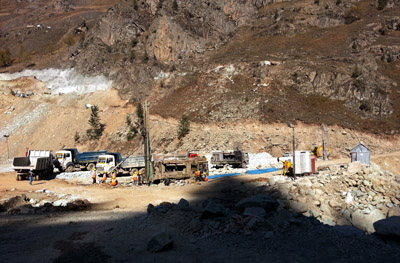The Union Power and New and Renewable Energy Minister recently announced that the Government will take strict action against power project developers who fail to meet the scheduled commercial date of operation or complete their projects within the designated timeline. Power project delays can have various consequences, affecting different stakeholders and aspects of the energy sector.
Delays in power projects often result in cost overruns. Construction delays can lead to additional expenses related to labour, materials, equipment, and financing. These increased costs can impact project viability and potentially lead to financial losses for developers. Power project delays can contribute to energy shortages in the region or country where the project was intended to address increasing demand. This can lead to inadequate power supply, frequent blackouts, and reliability issues in the electricity grid, negatively impacting industries, businesses, and consumers. Power project delays can hinder economic growth and development. Industries dependent on a reliable power supply may face production disruptions, reduced competitiveness, and potential job losses. Power projects often operate within a regulatory framework and contractual agreements. Delays may breach contractual obligations, resulting in legal disputes between project developers, contractors, and Government entities. Regulatory non-compliance may lead to penalties, fines, or even project cancellation. If new power projects are delayed, existing power infrastructure may need to handle increased demand beyond its capacity. This can strain the existing transmission and distribution systems, potentially leading to technical issues, grid instability, and reduced power quality. In cases where delayed projects are intended to replace or upgrade older and more polluting power plants, the delay can prolong the use of environmentally harmful sources of energy. This delay may hinder progress towards cleaner energy options and contribute to higher carbon emissions and environmental degradation.
Power project delays erode investor confidence in the energy sector, particularly if delays are persistent or widespread. Overall, power project delays can have wide-ranging consequences, impacting costs, energy supply, economic growth, regulatory compliance, infrastructure, the environment, and investor confidence. Timely project execution and adherence to schedules are crucial for ensuring reliable and sustainable energy systems. The minister is quite right in incorporating the consequences for developers who miss project deadlines. If a developer fails to meet the scheduled commercial date of operation, they will be barred from participating in project bidding for one year. Upon a second incident of missing deadlines, the developer will face a five-year ban.
The other environmentally friendly power options are too costly to be implemented; they cost almost four times as much as conventional energy. The upfront capital costs of battery storage systems are still significant, making them an expensive technology to deploy. The cost of batteries themselves, along with associated equipment and infrastructure, contributes to the overall high initial investment required. The scale of battery storage deployment in India is relatively small compared to other countries. This increases costs due to factors like import duties, transportation, and foreign exchange rates. Further, battery storage systems require supporting infrastructure such as charging and discharging stations, grid interconnections, and control systems. The development of such infrastructure adds to the overall cost of implementing battery storage projects.
The absence of dedicated policies and incentives specifically targeted at battery storage in India is a major hindrance to its widespread adoption. Without favourable policies such as subsidies, tax incentives, or production-linked incentives, the cost of battery storage remains higher compared to conventional energy sources. For this purpose, the Power Minister is advocating for a production-linked incentive scheme to support the deployment of grid-scale battery energy storage. This initiative aims to promote the development of cost-effective energy storage solutions in India.
The Minister has thoroughly analysed the data and proposed a series of measures that require significant reforms. Implementing these reforms will take time, but the Government is making concerted efforts to address the longstanding issues in the power sector.
Trending Now
E-Paper


